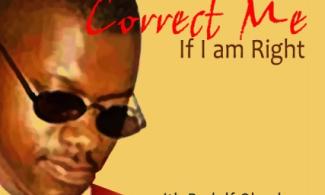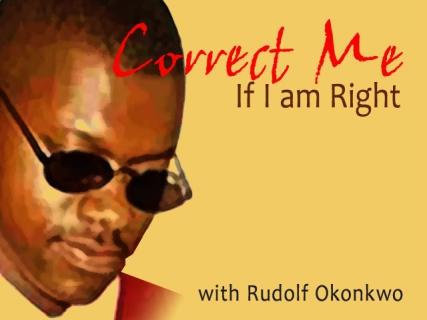
I stood up when she walked in. I offered to stay outside until he was done seeing her, but the doctor waved at me to sit. He motioned her to another chair adjacent to his desk. Though it was in Nigeria in the 90s, and I knew nothing about patient-doctor privacy rights, I sincerely felt I shouldn’t be in the room while a doctor examined a patient, especially when the patient is a young female.
So I stayed. I pegged my eyes on the floor studying the patterns of the carpet. But my ears were wide open.

After pleasantries that told me she wasn’t a new patient, she presented her aliment to the doctor. The doctor stood up and took her blood pressure and her temperature. He also used his stethoscope to check her heart beat. He then told her that her vital signs were normal. She didn’t let him finish before she told him that her aliment had been unrelenting in the last few days, and that it subsided only when he started his examination.
I shifted on my seat. And for what may be the second time, I lifted my face and stole a second glance at the girl. She wasn’t someone that I had seen before.
The doctor told her he would give her a medication that would take care of the illness. He walked over to a shelf by the window of his office, brought out a bottle of bills, counted enough that would last her two weeks and handed it over to her.
Come and see me again in two weeks if symptoms persist, the doctor said to her. As she left, I smiled at the doctor. He quickly read what my smile said and immediately protested.
“No, it was not one of ‘those’”, he said. He used a medical term I never had heard of to describe what she was suffering from.
“There was nothing wrong with her,” he later explained to me.
“So why did you give her pills?” I asked.
“There is no medication in those pills,” he replied.
I didn’t get it.
Placebo.
It took coming to America for me to know what placebo is, and to understand its impact in medicine. The process of drug trials and treatment plans put into consideration the placebo effect.
Generally speaking, placebo is a medically inert pill or substance given to a patient for his or her psychological relief without having an impact on the medical disorder. Most medical studies entail giving a group of patients in the trial a blank medication, a placebo, without letting them know. Patients sometimes see improvement in their medical conditions just because they expected it. This is called the placebo effect. The process of drug trials and medical treatment plans put into consideration this placebo effect. In determining the efficacy of a medication, it puts into consideration the fact that the illness of some people in the study will improve even if they did not receive any treatment.
In a 1955 study by anesthesiologist Henry K. Beecher titled, "The Powerful Placebo", he concluded that an average of 32% of patients respond to placebo, that is three out of every ten patients.
According to Scientific American, "The Placebo Effect can arise not only from a conscious belief in a drug but also from subconscious associations between recovery and the experience of being treated—from the pinch of a shot to a doctor’s white coat. Such subliminal conditioning can control bodily processes of which we are unaware, such as immune responses and the release of hormones. Researchers have decoded some of the biology of placebo responses, demonstrating that they stem from active processes in the brain."
In 1983, Roger S. Ulrich conducted a study in conjunction with a Pennsylvania hospital regarding patient welfare and window views. In the study, he placed patients recovering from an intense surgical procedure in two different rooms. One set were in a room overlooking leafy trees while the other were looking at plain brick wall. Those who were looking at trees recovered faster, took fewer strong medications, had less negative complaints and lower complications than those looking at plain walls.
Placebo effect has also been classified as part of the power of positive thinking. Humans have the propensity to react positively to a healer. Which raises the question, if three out of ten people will react positively to a placebo treatment, then who is performing that miracle? Pastor or Placebo?
Placebo is the proof that there is a reality far deeper than the one we can see and measure with our human tools. It is the gap that we need to fill. It is the “peace that passes all understanding.” And to a large extent, over generations, people before us have filled it. What they have used to fill it has now constituted a fog in our view.
We are essentially born into a fog. There is a fog of religion. There is a fog of myth. There is a fog of superstition. There is a fog of fear. There is a fog of science. Over decades, centuries and millennia, as old fogs go away, new fogs take their places. One thing about the fog that we are sure of is that it is not the final answer to what is really up in the sky. Fog blocks our unfettered engagement with life. We need to push away the fog with reason before we can get a glimpse of the truth.
Carl Sagan stated that extraordinary claims require extraordinary evidences. Sucked into the tyranny of the common denominator, we are consigned to a tight corner where we hold on as our life support a reductive simplification of what it means to be human.
The flat line on our electrocardiogram will one day manifest, but until we uproot our fog- induced assumptions, our final answer to an open question is just an excuse of people who dare not look beyond tomorrow. And so, I ask again, who performed that miracle? Pastor or Placebo?
And if I dare ask, is God lurking as placebo effect or is placebo effect and the power of positive thinking the phenomenon that we have called God?
Rudolf Ogoo Okonkwo is the author of This American Life Sef!